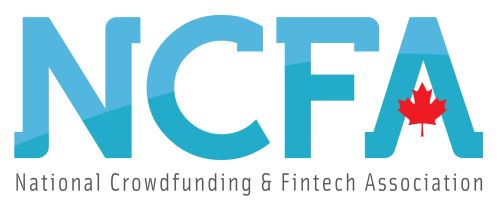Jun 10, 2024

 Image: Freepik
Image: FreepikIntroduction
Writing an invitation letter for a visa application can be a challenging task, especially if you’re unfamiliar with the legal requirements and formalities involved. For residents of Ontario, Canada, creating a compelling and legally sound invitation letter is crucial. This comprehensive guide will walk you through the process of drafting an effective invitation letter and explain how an online notary services in Ontario can assist in notarizing the document to enhance its credibility and acceptance.
What is an Invitation Letter?
An invitation letter is a formal legal document written by a host in Canada inviting a guest to visit for a specific purpose, such as tourism, business, or family events. This letter is often a key component of a visa application, as it helps immigration officers verify the legitimacy of the visit and the relationship between the host and the guest.
Why You Need an Invitation Letter in Ontario
In Ontario, an invitation letter is commonly required for visitor visa applications. It helps immigration authorities assess the validity of the visitor’s intentions and the host’s ability to support the guest during their stay. A well-drafted invitation letter can significantly boost the chances of visa approval by providing clear, credible information about the visit.
Components of an Invitation Letter
An effective invitation letter should include the following key elements:
- Host Information: Full name, address, contact details, and legal status in Canada (citizen or permanent resident).
- Guest Information: Full name, address, contact details, and relationship to the host.
- Visit Details: Purpose of the visit, duration of stay, accommodation arrangements, and financial support details.
- Legal Statements: A declaration of truthfulness and a commitment to cover the guest’s expenses if necessary.
How to Write an Invitation Letter
Writing an invitation letter involves clear, concise, and honest communication. Here’s a step-by-step guide:
- Start with Your Information: Introduce yourself, stating your full name, address, and your status in Canada.
- Introduce Your Guest: Provide the full name, address, and relationship of the person you are inviting.
- State the Purpose of the Visit: Explain why you are inviting the person, such as attending a family event, business meeting, or vacation.
- Provide Visit Details: Include the duration of the visit and where the guest will stay. Mention any financial support you will provide.
- Include Legal Declarations: End with a statement of truthfulness and your willingness to cover any expenses.
Ten Essential Tips for Writing an Effective Invitation Letter
- Be Clear and Concise
Ensure that your letter is clear and to the point. Avoid overly complex language and lengthy paragraphs. Immigration officers appreciate straightforward communication. Clearly state the purpose of the letter, who you are, and why you are inviting the guest. - Include All Relevant Information
Your letter should contain all necessary details about both the host and the guest. This includes full names, addresses, contact information, and the host’s status in Canada (citizen or permanent resident). Additionally, provide specific details about the planned visit, such as dates, duration, and purpose. - Explain the Relationship
Clearly describe the relationship between you and the guest. Whether they are a family member, friend, or business associate, providing context about how you know each other helps establish the legitimacy of the guest invitation. Include any relevant personal anecdotes or history to strengthen this point. - Outline Financial Responsibilities
Specify who will be responsible for the financial aspects of the guest’s stay. If you, as the host, will cover their expenses, clearly state this and outline which costs you will cover (e.g., accommodation, travel, food). This reassures immigration authorities that the guest will not become a financial burden on the state. - Provide Accommodation Details
Mention where the guest will be staying during their visit. Whether they will stay with you or in separate accommodation, providing this information demonstrates thorough planning and reassures authorities about the guest’s living arrangements. - Attach Supporting Documents
Include copies of supporting documents with your invitation letter. These might include a copy of your passport, proof of your residency status, and any other relevant documentation that supports your claims. These attachments add credibility to your invitation letter. - Make a Strong Case for the Purpose of Visit
Detail the purpose of the visit convincingly. Whether it’s for a wedding, business conference, or vacation, clearly explain why the guest’s presence is necessary and beneficial. If applicable, include an itinerary or schedule of planned activities. - Express Commitment to Ensure Compliance
Emphasize your commitment to ensuring that the guest complies with the terms of their visa, including returning home before their visa expires. This demonstrates responsibility and understanding of immigration laws. - Include a Statement of Truthfulness
Incorporate a declaration stating that all information provided is true and accurate to the best of your knowledge. This adds a layer of formality and legal integrity to the document. - Get the Letter Notarized
While not always mandatory, having your invitation letter notarized by a Notary Public can significantly enhance its credibility. Notarization provides a legal verification of your signature and the authenticity of the document.
How a Notary Public Can Help
A Notary Public in Ontario can provide several services to help with your invitation letter:
- Verification of Identity: Ensuring that both the host and guest are accurately represented in the document.
- Witnessing Signatures: Providing a legal witness to the signing of the document, which adds credibility.
- Notarizing the Document: Officially certifying the document to meet legal standards.
Benefits of Using a Notary Public
- Legal Validity: Enhances the letter’s acceptance by authorities.
- Accuracy: Ensures all details are correctly documented.
- Peace of Mind: Provides assurance that your document meets all necessary legal requirements.
Conclusion
Creating an invitation letter in Ontario, Canada, involves careful preparation and attention to detail. With the help of a Notary Public, you can ensure that your document is legally sound and stands up to scrutiny. Whether you’re inviting friends, family, or business associates, a properly notarized invitation letter can make a significant difference in the visa application process.
Final Thoughts
Remember, the goal of your invitation letter is to paint a clear and honest picture of the proposed visit. By being thorough and transparent, you can provide immigration authorities with the confidence they need to approve the visa application.

 The National Crowdfunding & Fintech Association (NCFA Canada) is a financial innovation ecosystem that provides education, market intelligence, industry stewardship, networking and funding opportunities and services to thousands of community members and works closely with industry, government, partners and affiliates to create a vibrant and innovative fintech and funding industry in Canada. Decentralized and distributed, NCFA is engaged with global stakeholders and helps incubate projects and investment in fintech, alternative finance, crowdfunding, peer-to-peer finance, payments, digital assets and tokens, artificial intelligence, blockchain, cryptocurrency, regtech, and insurtech sectors. Join Canada’s Fintech & Funding Community today FREE! Or become a contributing member and get perks. For more information, please visit: www.ncfacanada.org
The National Crowdfunding & Fintech Association (NCFA Canada) is a financial innovation ecosystem that provides education, market intelligence, industry stewardship, networking and funding opportunities and services to thousands of community members and works closely with industry, government, partners and affiliates to create a vibrant and innovative fintech and funding industry in Canada. Decentralized and distributed, NCFA is engaged with global stakeholders and helps incubate projects and investment in fintech, alternative finance, crowdfunding, peer-to-peer finance, payments, digital assets and tokens, artificial intelligence, blockchain, cryptocurrency, regtech, and insurtech sectors. Join Canada’s Fintech & Funding Community today FREE! Or become a contributing member and get perks. For more information, please visit: www.ncfacanada.org
Related Posts
- SEO Powered Content & PR Distribution. Get Amplified Today.
- PlatoData.Network Vertical Generative Ai. Empower Yourself. Access Here.
- PlatoAiStream. Web3 Intelligence. Knowledge Amplified. Access Here.
- PlatoESG. Carbon, CleanTech, Energy, Environment, Solar, Waste Management. Access Here.
- PlatoHealth. Biotech and Clinical Trials Intelligence. Access Here.
- Source: https://ncfacanada.org/simplify-your-invitation-letter-process-in-ontario-tips-and-how-a-notary-public-can-help/



